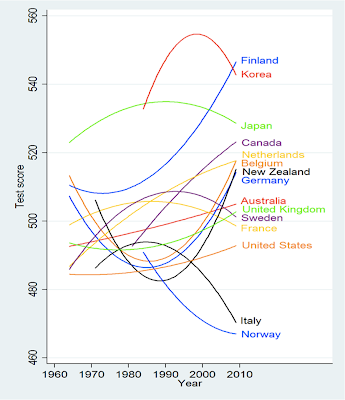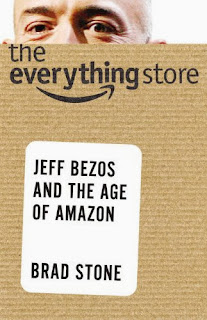Episodes
Friday Nov 29, 2013
Sex and the Genome
Friday Nov 29, 2013
Friday Nov 29, 2013
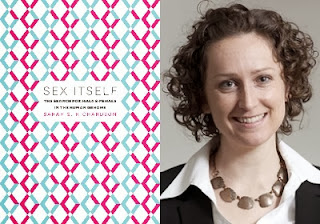 We’ve all heard that men are from Mars and women are from Venus. The notion that men and woman are different is deeply inculcated in our culture. Yet today science, our growing understanding of the human genome and the interaction of culture and genetics, are giving us a far greater understanding of those differences.
We’ve all heard that men are from Mars and women are from Venus. The notion that men and woman are different is deeply inculcated in our culture. Yet today science, our growing understanding of the human genome and the interaction of culture and genetics, are giving us a far greater understanding of those differences. Friday Nov 29, 2013
Friday Nov 29, 2013
 Let's face it, our attention spans have been decapitated by modernity. Our knowledge, criticism and even entertainment now comes to us in 140 neat characters. We ourselves can be critics, just by clicking on a “thumbs up.”
Let's face it, our attention spans have been decapitated by modernity. Our knowledge, criticism and even entertainment now comes to us in 140 neat characters. We ourselves can be critics, just by clicking on a “thumbs up.” Wednesday Nov 27, 2013
Vampires and Angles and Werewolves, oh my!
Wednesday Nov 27, 2013
Wednesday Nov 27, 2013
 For over thirty years, and through over thirty books Anne Rice has captivated us with her imaginative fiction. She has become one of the most beloved novelists of our time. With each new book or series, she not only reinvents herself, but reinvents whole new arenas of fiction. From the Vampire Chronicles, to her Christ the Lord books, to the world of angels.
For over thirty years, and through over thirty books Anne Rice has captivated us with her imaginative fiction. She has become one of the most beloved novelists of our time. With each new book or series, she not only reinvents herself, but reinvents whole new arenas of fiction. From the Vampire Chronicles, to her Christ the Lord books, to the world of angels.Monday Nov 25, 2013
How FDR Defied Polio to Win the Presidency
Monday Nov 25, 2013
Monday Nov 25, 2013
 When Bill Clinton ran for President in 1992, and came in second in the New Hampshire primary, he dubbed himself “the comeback kid.” The idea being that , Americans loved and admired the story of resurgence. The ability and the character to come back from seeming defeat. Perhaps no President's story embodies that more than FDR.
When Bill Clinton ran for President in 1992, and came in second in the New Hampshire primary, he dubbed himself “the comeback kid.” The idea being that , Americans loved and admired the story of resurgence. The ability and the character to come back from seeming defeat. Perhaps no President's story embodies that more than FDR. Saturday Nov 23, 2013
The Smartest Kids in the World
Saturday Nov 23, 2013
Saturday Nov 23, 2013
Thursday Nov 21, 2013
Oswald acted alone...
Thursday Nov 21, 2013
Thursday Nov 21, 2013
 If the assassination of a President took place today, we’d all know about it in a matter of seconds. Alerts, tweets, the Internet. We’d all have the same facts, literally in an instant. In a way that microsecond information impacts the way we process the news itself.
If the assassination of a President took place today, we’d all know about it in a matter of seconds. Alerts, tweets, the Internet. We’d all have the same facts, literally in an instant. In a way that microsecond information impacts the way we process the news itself.Thursday Nov 21, 2013
It was the Mafia....
Thursday Nov 21, 2013
Thursday Nov 21, 2013
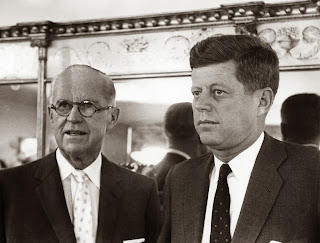
Sunday Nov 10, 2013
The Generals - American Military Command from WWII to Today
Sunday Nov 10, 2013
Sunday Nov 10, 2013
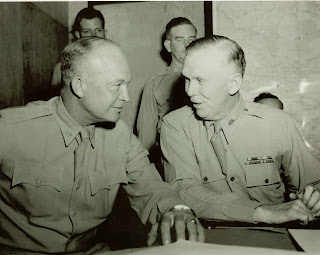 In the private sector, when corporations get into trouble they replace the CEO. When sports teams repeatedly have a losing season, invariably they replace the coach. If sales are down, managers are replaced. Yet in the military today, it's very rare that generals are replaced. Even in the wake of catastrophic failure.
In the private sector, when corporations get into trouble they replace the CEO. When sports teams repeatedly have a losing season, invariably they replace the coach. If sales are down, managers are replaced. Yet in the military today, it's very rare that generals are replaced. Even in the wake of catastrophic failure.Sunday Nov 10, 2013
The resilience of the human spirit
Sunday Nov 10, 2013
Sunday Nov 10, 2013
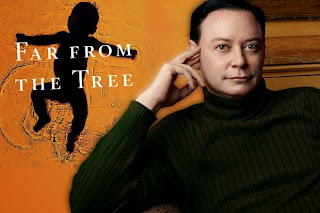 Woody Allen, in Annie Hall, said that he felt that life was divided into the horrible and the miserable. The horrible he thought were terminal cases, and blind people, and those with severe disabilities. He said, “I don't know how they get through life.”
Woody Allen, in Annie Hall, said that he felt that life was divided into the horrible and the miserable. The horrible he thought were terminal cases, and blind people, and those with severe disabilities. He said, “I don't know how they get through life.” Saturday Nov 09, 2013
# Tweet, Tweet
Saturday Nov 09, 2013
Saturday Nov 09, 2013
Thursday Nov 07, 2013
The Psychopath Inside
Thursday Nov 07, 2013
Thursday Nov 07, 2013
 Even if you are not a football fan, you’ve all seen the diagrams of plays with all those X’s and O’s. It makes you think, and even sometimes makes the players and coaches think, that they have it all figured out. If you just follow the pattern, you will have success and that it will be a winning play.
Even if you are not a football fan, you’ve all seen the diagrams of plays with all those X’s and O’s. It makes you think, and even sometimes makes the players and coaches think, that they have it all figured out. If you just follow the pattern, you will have success and that it will be a winning play.Tuesday Nov 05, 2013
One family's life defines the 20th Century
Tuesday Nov 05, 2013
Tuesday Nov 05, 2013
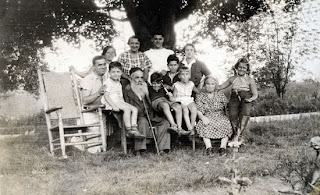 When we look at the emergence of the diaspora of any ethnic group, we realize how important immigration is. To the Jews of the 20th century it was everything. Some would migrate to America and become pillars of both capitalism and communism. Some would migrate to Palestine and birth the state of Israel out of the desert. Others would be left behind in Europe and suffer the last full measures of the holocaust. They to would impact history, both by their courage and even by what they might have accomplished.
When we look at the emergence of the diaspora of any ethnic group, we realize how important immigration is. To the Jews of the 20th century it was everything. Some would migrate to America and become pillars of both capitalism and communism. Some would migrate to Palestine and birth the state of Israel out of the desert. Others would be left behind in Europe and suffer the last full measures of the holocaust. They to would impact history, both by their courage and even by what they might have accomplished.Monday Nov 04, 2013
What it means to be human
Monday Nov 04, 2013
Monday Nov 04, 2013
 We know that genes help make us what and who we are. But, of the 25,000 genes we possess, a relatively few are significantly different from person to person. Some of those genes are often referred to as the Compatibility Genes. Genes that both impact our relationships and determine how we responded to infection and disease.
We know that genes help make us what and who we are. But, of the 25,000 genes we possess, a relatively few are significantly different from person to person. Some of those genes are often referred to as the Compatibility Genes. Genes that both impact our relationships and determine how we responded to infection and disease.Sunday Nov 03, 2013
Nine Economic Policy Disasters and What We Can Learn from Them
Sunday Nov 03, 2013
Sunday Nov 03, 2013
 Imagine if decisions in Washington, or at any level of government for that matter, were really made on the basis of policy. If careful analysis could win out over politics. Certainly the current health care debate would be very different. But so would our discussions about economic policy. If our discussion of the 2008 financial meltdown had been about analysis of what happened, as opposed to who's to blame, perhaps we’ve have learned a lot more from it.
Imagine if decisions in Washington, or at any level of government for that matter, were really made on the basis of policy. If careful analysis could win out over politics. Certainly the current health care debate would be very different. But so would our discussions about economic policy. If our discussion of the 2008 financial meltdown had been about analysis of what happened, as opposed to who's to blame, perhaps we’ve have learned a lot more from it. Saturday Nov 02, 2013
A beacon of democracy or an apartheid state?
Saturday Nov 02, 2013
Saturday Nov 02, 2013
 If I said that this conversation was about authoritarian politics, the religious right, the rise of Christianist fundamentalism, a demographic crisis facing one political party, and the continued rise of military power, you would easily assume we would be talking about the US. In fact, these same forces are at play in greater Israel, and they are constantly reinforced here, by perhaps the most powerful political lobby in the United States.
If I said that this conversation was about authoritarian politics, the religious right, the rise of Christianist fundamentalism, a demographic crisis facing one political party, and the continued rise of military power, you would easily assume we would be talking about the US. In fact, these same forces are at play in greater Israel, and they are constantly reinforced here, by perhaps the most powerful political lobby in the United States.Thursday Oct 31, 2013
The Everything Store
Thursday Oct 31, 2013
Thursday Oct 31, 2013


